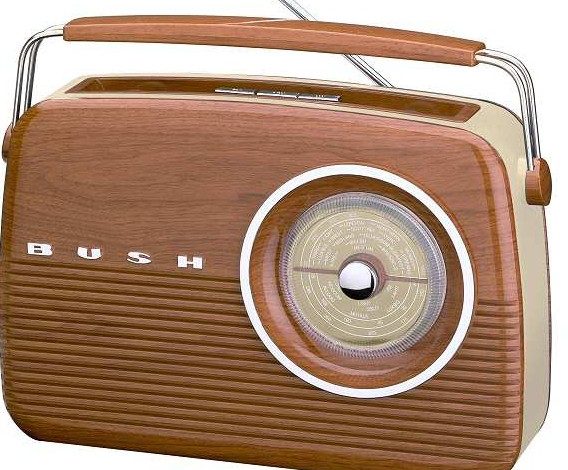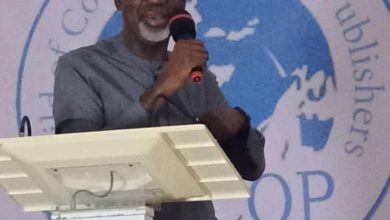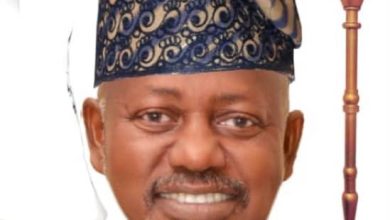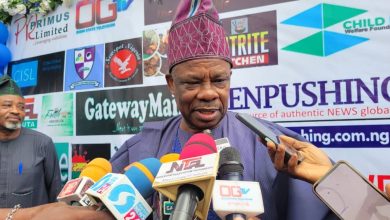
New Radio in Today’s New World: An Evolutionary Phenomenon
By OlufemiOrunsola
When the young Italian scientist credited with the invention of what we now know as radio discovered the first wireless transmission ever recorded in human history towards the end of the 18th century, little did the world knew that radio was going to become such a huge evolutionary phenomenon that will stand the test of time across the world.
As the world commemorates the World Radio Day 2021 in line with the United Nations Educational, Scientific and Cultural Organisation’s (UNESCO) annual culture of dedicating February 13th every year to raise awareness among the public and the media on the importance of radio, it is quite significant to reflect on the theme for this year’s celebration -New World, New Radio, being the 10th edition of the day observe by UNESCO since 2011 when
UNESCO’s General Conference, at its 36th session, proclaimed February 13 as World Radio Day. The day, February 13 was proposed by the Director-General of UNESCO because it coincides with the anniversary of the United Nations Radio, the UN’s international broadcasting service which was established on February 13, 1946.

The theme for this years celebration draws more global attention to the evolutionary and phenomena role of radio as both the most accessible and effective way of delivering information to an heterogeneous mass of people simultaneously even in today’s global digital communication ecology.
Although radio birthed at the break of the 19th century, it is interesting to note that over the last 110 years or thereabouts, radio has consistently remained a veritable medium of mass communication even in the 21st century where new media technologies have emerged while old media have continued to merge and shrink in the digital landscape.
Radio, like a colossus, has stood the test of time, adapting to new changes in the world, sustaining its relevance in the discharge of its tripodal duties of informing, educating and informing the masses. Of a truth, scholarly researches across the world have upheld the notion that radio has the widest geographical reach and the greatest audiences compared with the Internet, television, and newspapers.
Operating essentially on the pluralistic mode of government ownership, private ownership as well as community ownership, radio has continued to deliver the dividends of information democratisation to the masses, breaking the barriers of illiteracy which impairs heavily on mass utilization of most modern channels of new media. Radio, despite being an auditory medium, sustained its place alongside the emergence of the equally powerful sight-and-sound medium – the television and the new media.
On a global scale, at the wake of the COVID-19 pandemic, radio has proved itself to be a very powerful, credible medium for information and mass education even when the formal educational structures were shut down owing to global lock down of schools.
Radio has successfully synergized with the internet with the birth of what we know as internet radio. Today, more than than any other conventional electronic media, radio has successfully synchronized with the digital landscape while maintaining its unique auditory nature that transcends the barriers of illiteracy and even geographical location as attested to by the the multiplicity of radio stations pooled up for quick access for instance, on Radio Garden and other similar radio pool platforms.

While the theme of this year’s World Radio Day has been aptly described as an ode to the resilience, dynamics and sustained relevance of radio, it is quite instructive to pay ample attention to the challenges confronting radio especially in Africa, where the monster of poor power supply steers at operators of radio in the face, posing great threats to the survival of radio stations in an heavily commercialized and deregulated industry.
Unfortunately, the pluralistic nature of the mode of operation of radio is yet to be fully explored and exploited in most developing countries, like Nigeria, where the quantum of community radio ownership still remains very low and leaves too little to be desired. This therefore calls for more positive actions from relevant stakeholders such as community leaders, campuses of tertiary institutions, opinion leaders, Civil Liberty Organisations, the broadcast regulatory bodies as well as the Federal Governments to make conscious moves to deepen mass participation and democratization of radio medium via licensing of more community radio stations, of which Campus radio stations are a unique genre, while more User Generated Contents(UGC) are encouraged to be injected into the broadcast menu of mainstream government owned and private radio stations.
True to the sub themes of this year’s celebration, the world is fast changing but radio swiftly adapts and innovates, sustaining its relevance by blending to new technologies. Therefore, radio remains the go-to medium of mobility, accessible everywhere and to everyone any time sans frontiers.
On the whole, the words of Ernest ArgyemangYeboah that “Radio is powerful not because of the microphones, but the one who sits behind the microphones” strikes a chord of relevance that properly underscores the need to celebrate radio broadcasters across the world who have dedicated themselves to the highly demanding service of humanity via radio over the years as we commemorate the World Radio Day this year.
Happy World Radio Day People!!!
Olufemi Orunsola, a Principal Radio Technologist at the Department of Mass Communication, Moshood Abiola Polytechnic, Abeokuta, writes from Abeokuta, Ogun State, Nigeria.
FOOTNOTE: You want to share story with us? You want to advertise with us? You need publicity for product, or service, or event? Contact us on WhatsApp +2348073463653 or email penpushing@yahoo.com







